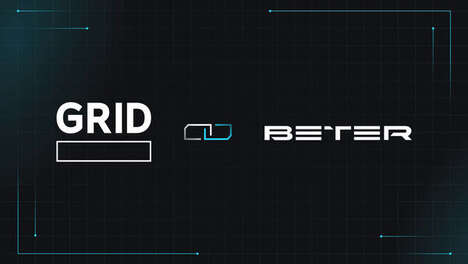Rewriting Gaming Playbook
An Interview with Augustin van Rijckevorsel, CEO of Ultra.io
Related Trend Reports
Business, Computers, Design, Furniture, Gadgets, Games, Hip Hotels, Home, Multimedia, Tech After twenty years spent building, scaling, and flipping companies by venturing where others fear to tread, Ultra’s new CEO is confronting an industry that has been stuck in neutral for two decades. Seeing gaming’s inertia as the greatest untapped opportunity in tech, they’ve championed a platform designed to hand ownership back to creators, reward players fairly, and inject fresh momentum into every corner of the ecosystem. With eyes trained on Europe’s innovative talent and an unwavering commitment to rethink distribution from the ground up, Ultra aims to rewrite the playbook, challenge entrenched giants, and awaken gaming to its next evolution.
After twenty years spent building, scaling, and flipping companies by venturing where others fear to tread, Ultra’s new CEO is confronting an industry that has been stuck in neutral for two decades. Seeing gaming’s inertia as the greatest untapped opportunity in tech, they’ve championed a platform designed to hand ownership back to creators, reward players fairly, and inject fresh momentum into every corner of the ecosystem. With eyes trained on Europe’s innovative talent and an unwavering commitment to rethink distribution from the ground up, Ultra aims to rewrite the playbook, challenge entrenched giants, and awaken gaming to its next evolution.1. Tell us about your journey to becoming CEO of Ultra and your vision for the company's place in the gaming ecosystem.
I've spent 20 years building, scaling, and flipping companies by going where others don't. When I see an industry stuck in neutral, I see opportunity. Gaming has been asleep for two decades, and Ultra is the platform to wake the industry up, and rewrite the playbook.
I believe Ultra is more than just another gaming platform; it is a rebellion against a tired industry. Gaming has been stagnant since the early 2000s, while other sectors like film, music, and social media have reinvented themselves to thrive.
Our vision is to make gaming rewarding again, creating a fair and equitable ecosystem by providing true ownership, fair pricing models, and genuine experiences, giving the industry the shakeup it is long overdue for.
And Europe is the ideal playground to realise this vision, because its innovative talent, and untapped potential can outpace complacent U.S.-based gaming giants.
2. How do you define innovation in the context of gaming distribution, and how does Ultra embody this definition?
Innovation means gutting the old system, not tweaking it. Platforms like Steam are bleeding gamers dry. Epic lures players with one hit only to lose them when the next title fails to deliver. We have a vision that will take such a big chunk of their business, they will be forced to join the revolution we have started, or face going under. Gaming developers spend years building these games and get crumbs. Players too spend hours grinding, and get nothing. Ultra is flipping this script.
Our understanding of market potential and drive to disrupt the status quo has attracted support from across the industry, including major players like Ubisoft and leading investors.
Ultra promises to hand control back to publishers and developers. How does your team generate and prioritize ideas that fulfill this mission while challenging industry norms?
We begin by listening to developers and publishers who have been shackled by a stagnant industry and unimaginative distributors for too long. Right now, we are prioritizing a suite of features, apps, and data access that make Ultra the destination where creators thrive and connect directly with gamers.
All the building blocks and systems at Ultra bypass the steep cuts imposed by traditional platforms, giving small developers and publishers a real shot at profitability. Our team greenlights ideas straight from publishers and developers, not industry gatekeepers, building on Europe’s outsider grit to spot what breaks the mold.
Every idea gets weighed by one rule: Does it hand control back to creators and shake up the tired status quo?
3. Creative breakthroughs often require mental space. What personal or organizational rituals do you employ to foster fresh thinking when tackling entrenched industry problems?
Disrupting takes guts, not caution. At Ultra, we test fast, cut what fails, and build what works to smash through twenty years of industry rust. For instance, we give developers early access to Ultra’s releases, like the suite of apps or the token system, and use their feedback to spark solutions. This is not about quiet reflection. It is about staying close to the problem, giving the team room to take risks, and turning insights into action.
The gaming landscape evolves rapidly. What methodologies and resources does Ultra use to identify emerging trends and anticipate shifts in both consumer and developer expectations?
Meeting expectations in this industry requires guts, grit, and numbers. We don’t need more red tape. We need clarity, consistency, and the freedom to build.
We keep our ear to the ground, tracking how players engage, what frustrates creators, and where the industry stalls. Our European vantage point gives us a unique lens to spot global shifts early, free from U.S.-centric blind spots. No matter the regulatory challenges, devs in the EU need to stay focused because the choice is simple: lead, or get left behind. Ultra is a lean machine and has the flexibility to move quickly when our core clients and market demand it.
Ultra is sharpening its teeth by putting creators first and gamers in charge, while building the Netflix of gaming and connecting wider ecosystems with our own through strategic partnerships.
4. When innovating against established players with significant market power, what has been your most formidable challenge, and how are you addressing it?
Among our tougher battles in this industry is breaking the inertia of big players operating in their comfort zones. Bigger players lack the tools to turn gaming into a serious(-ly enjoyable) event. We move fast with UOS, tying every game together, proving the old guard’s cozy days are numbered.
Our gaming blockchain is built for the fight, tuned by and for gamers, developers, and publishers to get what they need without the costly burdens of the industry’s old guard. Ultra recognises that gamers do not care about fancy backend tech if it does not deliver a good product with real value. So that is what we are producing.
We hand our clients the tools to build on wins fast, dodging the slow-release traps that bog them down. This levels the field, letting smaller publishers hit hard against those coasting purely on market clout.
5. Has there been a pivotal moment where principles or technologies from another industry fundamentally shaped Ultra's approach to revolutionizing gaming distribution?
When I joined Ultra as CEO, I did not walk into a blank slate. I found a product with massive potential and a team of die-hard builders. My role is to scale it and make the world pay attention.
We looked at what Netflix did to Blockbuster. What Spotify did for music. It was about tearing down a clunky, middleman-driven system and replacing it with something faster, more accessible, and built for the user’s evolving preferences. Then we asked: why not gaming? Why are gamers still stuck in 2005? We are taking lessons from those industries and building something faster, fairer, and player-first.
6. Building a disruptive organization requires a distinctive culture. How are you cultivating an innovation mindset at Ultra that can successfully challenge U.S. industry dominance from Europe?
As Ultra’s new CEO, I will fearlessly advocate for a regulatory pivot in the EU. It is the only option we have if we want to empower EU companies to be the innovators and disruptors we can be. Blockchain gaming specifically needs clarity to grow, and while the EU deliberates, the U.S. is already positioning itself to eat our lunch. Our team believes gamers are owed more than just games - they deserve ownership, rewards, and a stake in the ecosystem. Irrespective of what the U.S. plans to do, we are not waiting around. We are building. We are giving gamers a real stake in the future of gaming.
7. Looking toward the future of blockchain-enhanced gaming, how will Ultra continue to lead innovation while demonstrating tangible benefits to both creators and players?
Ultra is out to do for gaming what Netflix did to film, tearing apart the industry’s rusty old ways to build something fresh and fierce. Blockchain’s just the muscle, not the whole point, we are locked on delivering real wins for gamers and leading the pack with results that stick.
We are making UOS - THE gaming currency, not some side token. UOS is how we envision making gaming fair again, with a token that powers real - rewards, ownership, and value. Our tech is made for gaming, not clunky leftovers. It’s fast, it is cheap, and it stays out of the way so players and creators get the goods without blinking. No more gas wars or broken UX.
Featured Articles

Cozy Technology
Gaming setups evolve into immersive personal sanctuaries

Gaming Projector
Brands introduce projectors tailored for immersive gaming experiences.

Branded Controller
Brands are collaborating with hardware manufacturers on co-branded controllers

Digital Console
Mainstream gaming consoles are doing away with disc drives in favor of downloads

Desk Computer
Desks with internal compartments to house custom computers are gaining popularity

Multi-Platform Progress
Developers are launching games with cross-progression for convenience

In-Game Advertisement
Gaming companies are allowing non-intrusive in-game live advertisements

Esports Stay
Hotels increasingly accept esports-related deals for events and competitive programs

Esports Betting
Esports companies increasingly invest in enhanced technologies for betting sites